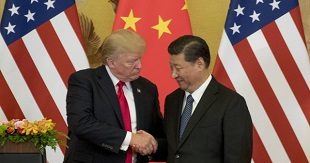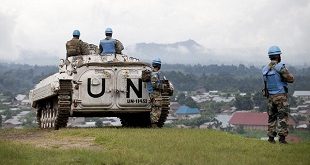
By Hassan Shire
Museveni has disregarded his constitutional duty to promote the welfare of all citizens
President Yoweri Museveni on Feb.24 assented to a law that will institutionalise discrimination, and increase the potential for violence against one of the most vulnerable groups in Uganda.
The Anti-Homosexuality Act 2014 has been widely criticised for violating many of the most fundamental human rights contained in Uganda’s Constitution. In signing the law, President Museveni has disregarded his constitutional duty to promote the welfare of all citizens, in exchange for short-term political popularity.
It has been asserted that the Anti-Homosexuality Act seeks to protect Ugandans from imported, foreign practices. On the contrary, it is the law that is a foreign import, influenced by US evangelists such as Scott Lively, who have worked to spread their message of intolerance around the world, including in Uganda. The criminalisation of acts of ‘carnal knowledge against the order of nature’ is itself a hangover from the colonial era. Yet in the climate of intimidation and fear that is being created in Uganda, it is incredibly challenging for human rights defenders to expose these realities and to have the facts heard.
Many commentators have noted the new law’s broad and vaguely worded prohibition of ‘promotion’ of homosexuality. In failing to define ‘promotion’ (hardly a surprise, since one cannot define that which does not exist), the law threatens to have a chilling effect on freedom of expression, assembly and association for all Ugandans – and not just the presumed ‘targets’ of the law. Human rights groups, health professionals, and other organisations that seek to promote tolerance and respect for lesbian, gay, bisexual and transgender (LGBT) people could potentially be shut down, and their directors face prison sentences.
“Anyone who cares to read history books knows very well that in times of crisis, when people at the locus of power are feeling vulnerable and their power is being threatened, they will turn against the weaker groups in society,” said the Ugandan scholar Sylvia Tamale in 2009. In this case, however, the government has not only turned on weaker groups in society, but in passing this law has taken one more step towards stifling any form of dissent in the country.
The passing of the Anti-Homosexuality Act cannot be viewed in a vacuum, but must be seen alongside a series of restrictive measures in the past year. An early draft of the Non-Governmental Organisation Registration (Amendment) Bill currently under discussion, for example, would allow the NGO Board to dissolve any organisation for any reason “necessary for the public interest”. Last year NGOs were accused of sabotaging Uganda’s oil sector and warned that they risked closure. The Public Order Management Act (2013) gives the police wide powers to issue orders to disperse public meetings. Black Monday activists challenging corruption have been arrested while distributing leaflets. In May 2013, the police raid on the Daily Monitor and other media houses, and the subsequent crackdown on the demonstrations protesting the ‘media siege’, were clearly part of this same narrative.
Independent voices are valuable and indispensable to Uganda. Human rights defenders campaign on a whole range of issues and do important work in the chain of human rights protection for all people. For example, activists have promoted the respect of economic, social and cultural rights in Uganda, such as the right to food and health rights. The criminalisation of torture came about after a dedicated campaign by human rights activists.
There should be no doubt that the passing of the Anti-Homosexuality Act, as well as being an affront to the ancient African (not western) concept of Ubuntu and the constitutionally guaranteed human rights of all Ugandans, is part of a broader crackdown on civil society in Uganda. Now is the time for civil society, in the broadest sense of the word, to stand together to loudly defend the rights of all Ugandans to be free from discrimination and persecution, and to call for this law to be totally scrapped.
Hassan Shire is the Executive Director of East and Horn of Africa Human Rights Defenders Project Kampala, Uganda
 The Independent Uganda: You get the Truth we Pay the Price
The Independent Uganda: You get the Truth we Pay the Price


